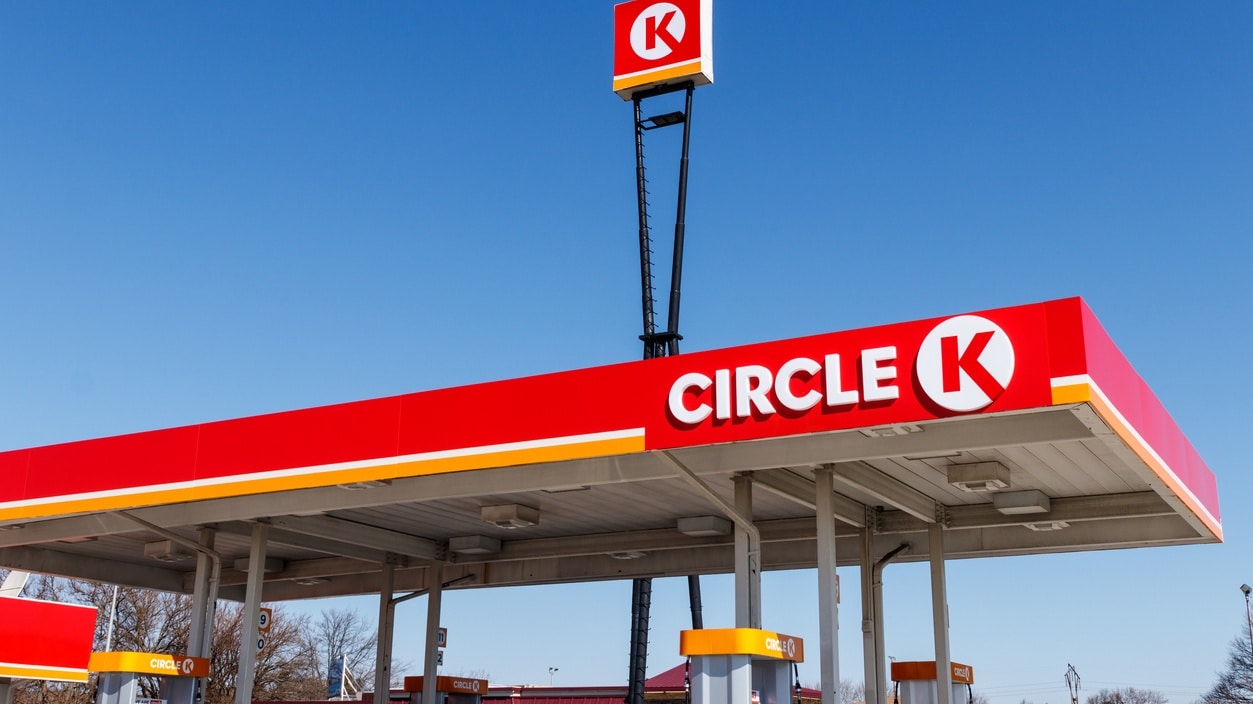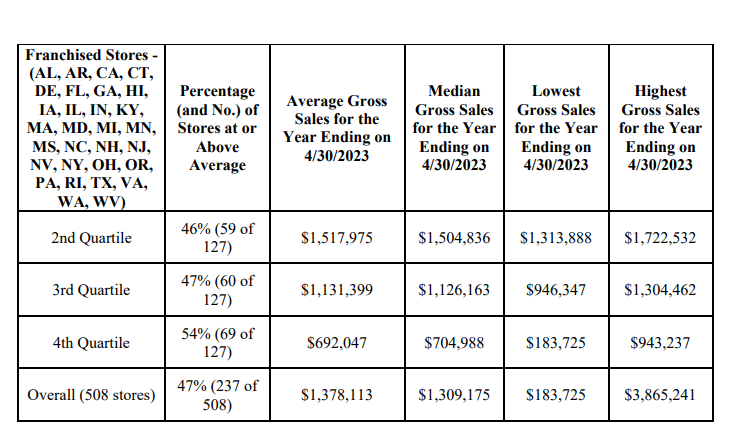Circle K Franchise FDD, Profits & Costs (2025)

Circle K is a well-established franchise in the convenience store industry, having been founded in 1951. Initially started by Fred Hervey who purchased three Kay’s Food Stores in El Paso, Texas, Circle K has since evolved into a prominent global brand.
The franchise is headquartered in Tempe, Arizona, and is owned by the Canadian company Alimentation Couche-Tard. Circle K began its franchising operations in 1999 and has expanded significantly since then, demonstrating a strong growth trajectory in the convenience store sector.
Circle K stores are known for offering a wide range of products including snacks, beverages, tobacco products, and gasoline, catering to the everyday needs of consumers. They distinguish themselves with a commitment to convenience, which is reflected in their strategic store locations and the variety of products they offer.
Initial Investment
How much does it cost to start a Circle K franchise? It costs on average between $935,000 – $8,297,000 to start a Circle K franchised store.
This includes costs for construction, equipment, inventory, and initial operating expenses. The exact amount depends on various factors, including the type of facility you choose, the location, and whether the franchisee chooses to lease or purchase the property. Indeed, Circle K offers 2 types of franchises:
| Type of Circle K Business | Initial Investment |
|---|---|
| Newly Constructed Circle K Business | $3,079,500 to $8,296,500 |
| Converting an Existing Convenience Store and Gas Station to a Circle K Business | $934,500 to $3,619,500 |
We are summarizing below the main costs associated with opening a Newly Constructed Circle K Business. For more information on costs required to start a Circle K franchise, refer to the Franchise Disclosure Document (Item 7).
| Type of Expenditure | Amount |
|---|---|
| Initial Franchise Fee | $25,000 |
| Regional In-Store Training Fee | $1,000 ($500 per attendee) |
| Travel and Living Expenses While Training | $3,500-$15,500 |
| Construction, Remodeling, and Leasehold Improvements | $1,800,000-$5,000,000 |
| Other Site Development Costs | $135,000-$250,000 |
| Furniture, Fixtures & Equipment | $500,000-$1,200,000 |
| Car Wash (building), if included | $150,000-$300,000 |
| Car Wash (equipment), if included | $215,000-$900,000 |
| EPOS and Computer Systems | $50,000-$80,000 |
| Signs | $50,000-$150,000 |
| Security Deposits and Licenses and Permits (excluding impact fees) | $5,000-$25,000 |
| Utility Deposits | $1,500-$5,000 |
| Vendor Deposits | $0-$16,000 |
| Inventory (merchandise and fuel) | $100,000-$220,000 |
| Professional Fees | $1,000-$5,000 |
| Insurance | $7,500-$24,000 |
| Grand Opening Costs | $5,000-$10,000 |
| Fuel Security Deposit | $20,000-$50,000 |
| Additional Funds (3 months) | $10,000-$20,000 |
| TOTAL | $3,079,500-$8,296,500 |
Average Revenue (AUV)
How much revenue can you make with a Circle K franchise? A Circle K franchised store makes on average $1,309,000 in revenue (AUV) per year.
Here is the extract from the Franchise Disclosure Document:

Download the Franchise Disclosure Document
Frequently Asked Questions
How many Circle K locations are there?
As of the latest data, there are approximately 6,965 Circle K locations across the United States. These stores operate in 46 states and territories, with the highest concentration in Florida, where there are around 951 stores, representing about 14% of all Circle K locations. Other states with a significant number of stores include Texas and Arizona.
What is the total investment required to open a Circle K franchise?
The total investment required to open a Circle K franchise ranges from $935,000 – $8,297,000.
What are the ongoing fees for a Circle K franchise?
Circle K franchisee must pay a royalty fee ranging from 2.5% to 5.5% of gross sales, depending on the agreement. Additionally, franchisees are required to pay an advertising royalty fee of 1.5%. These fees are crucial for covering the costs of brand support and marketing initiatives provided by Circle K.
What are the financial requirements to become a Circle K franchisee?
To become a Circle K franchisee, you need to meet certain financial requirements. The minimum net worth required is $500,000, which demonstrates the financial stability needed to support the franchise.
Additionally, you must have at least $100,000 in liquid capital to cover initial costs and ongoing operational expenses. These requirements ensure that franchisees are financially prepared to manage the investment and run a successful business.
Who owns Circle K?
Circle K is owned by Alimentation Couche-Tard, a Canadian multinational company. Alimentation Couche-Tard acquired Circle K in 2003 and has since integrated it as a major brand under its corporate umbrella. The company operates Circle K stores globally, making it one of the largest convenience store operators in the world.
Disclaimer
Disclaimer: This content has been made for informational and educational purposes only. SharpSheets is an independent educational resource and is not affiliated with, endorsed by, or representing any franchisor mentioned on this website. Where noted, figures are taken from the franchisor’s Franchise Disclosure Document (FDD). In some cases, we may provide independent calculations or estimates based on publicly available information. We do not make any representation or warranties with respect to the accuracy, applicability, fitness, or completeness of the information presented in the article. You should not construe any such information or other material as legal, tax, investment, financial, or other professional advice. Nothing contained in this article constitutes a solicitation, recommendation, endorsement, advertisement, or offer to buy or sell any franchises, securities, or other financial instruments in this or in any other jurisdiction in which such solicitation or offer would be unlawful under the franchise and/or securities laws of such jurisdiction.
All content in this article is information of a general nature and does not address the detailed circumstances of any particular individual or entity. Nothing in the article constitutes professional and/or financial and/or legal advice, nor does any information in the article constitute a comprehensive or complete statement of the matters discussed or the law relating thereto. You alone assume the sole responsibility of evaluating the merits and risks associated with the use of any information or other content in this article before making any decisions based on such information or other content.




